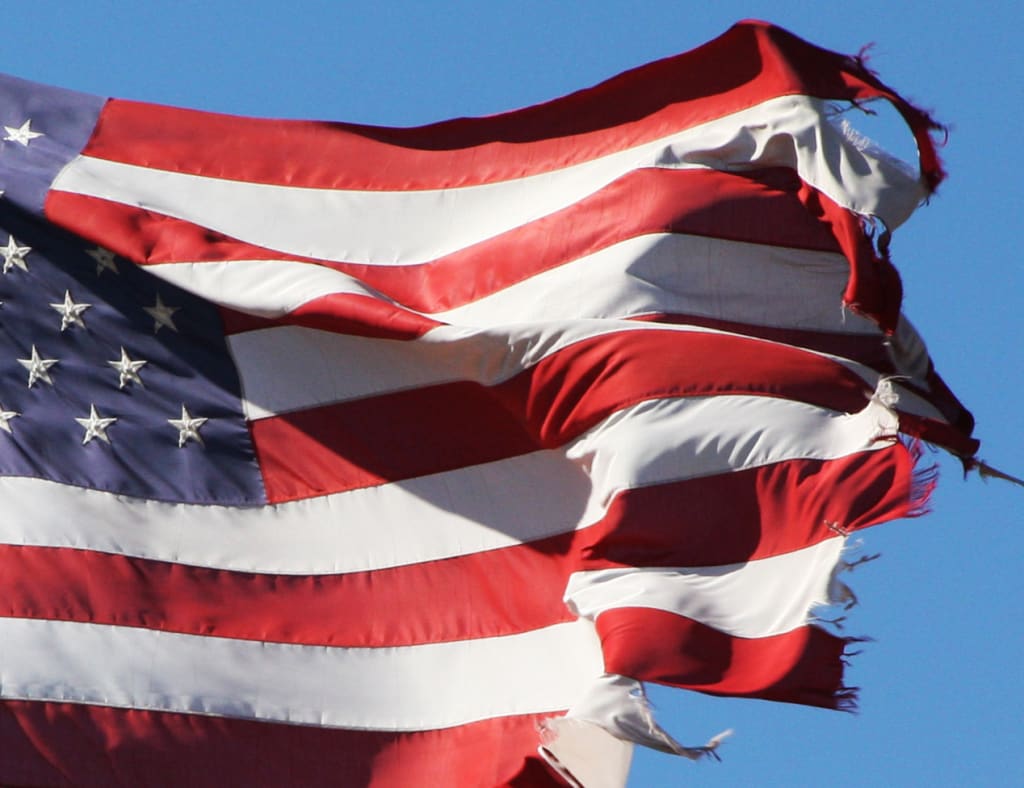America's Future Isn't Germany's Past
Look to its own 'backyard'.

Here’s an obscure quiz question for you. Don’t cheat.
When Harrods decided to set up its first overseas shop, back in the early twentieth century, which city did it choose?
You probably said Paris or Berlin, right? Or at a stretch St Petersburg? After all they were London’s great rivals at the time. Reasonable guesses, but you weren’t even on the right continent.
New York then, surely? Warmer, but you’d need to look further south. Below the Rio Grande in fact, to the region the US considers its own backyard, because they actually chose Buenos Aries.
I read this fact in the Economist a few years back. It’s the sort of pithy, little-known nugget that the magazine excels at when illustrating a point. It stuck with me ever since because I geek out over history and the rise and fall of great powers. And this story neatly encapsulated the history of Argentina: a country on the fast track to the future...which derailed and never really recovered, even one hundred years later.
I was reminded of it again recently while exploring Argentina’s capital. Stepping foot in Buenos Aries for the first time, the imposing turn-of-the-century buildings and opulent avenues are a genuine surprise. They rival almost anything from the capitals of Europe in their heydays.
The reason is just as surprising. At the beginning of the last century, Argentina looked like a future superpower. As the Economist pointed out, ‘Its economy had grown faster than America’s over the previous four decades. Its GDP per head was higher than Germany’s, France’s or Italy’s….for the young and ambitious, the choice between Argentina and California was a hard one.’
Walking around the capital, one Argentinian I spoke to said that Buenos Aries was the Dubai of its time. Contrast to today. Although it’s a thriving city, you don't even have to scratch the surface to see the cracks. I walked past families washing their kids in the sprinklers which green the main avenues. On otherwise wealthy looking streets, people had made homes out of propped up mattresses. Sitting at a window table in the city meant regular taps on the windows from beggars looking for food or spare change.
Of the people that I spoke with - including one guy whose family's savings collapsed in the last Argentinian economic crash, from the hundreds of thousands to just the hundreds - most were clear that things were not as they should or could have been. Conversations regularly circled back to lost opportunities, unrealised potential, and the merry-go-round of political and economic crises which Argentina hasn't been able to stop for the past century.
Which brings me to the United States. In the Economist article I mentioned above, the magazine predicted that the danger for many countries was becoming the Argentina of the 21st century. Emerging countries, it argued, were most at risk from its disease. The cause? A toxic combination of ‘weak institutions, nativist politicians...and a persistent refusal to confront reality’.
Sound familiar?
The Economist made its prediction about emerging markets back in 2014. But three years on and it looks like Donald Trump is waving at them through the crystal ball.
It's a strange state of affairs. Historically, any talk of political diseases doesn't tend to include the USA and banana republics in the same sentence. No longer. And not just on the fringes of the Left.
But is this all overblown? The wild imaginings and worst fears of a commentariat still in shock from Trump's win? America has always been considered immune to ailments like authoritarianism and strongmen syndrome. These were problems for South America, Africa and Asia. The US may still be adequately protected; it's too early for an accurate prognosis. But make no mistake, the Republic is looking pale and peaky. And the body politic has rarely faced so many health complications at the same time.
Take Steve Bannon (Trump strategist and aide). He's called for nothing less than the 'deconstruction of the administrative state'. There's speculation that this is the reason why government agencies like the State Department are being hollowed out. Their funding is being cut, positions aren't being filled, even at the upper levels, and people's in-tray's, usually filled with White House requests, are much more empty than before.
Meanwhile other institutions, like the judiciary, are being weakened in different ways. Although historically President's have criticised judicial decisions. Trump has taken this one (dangerous) step further - recently attacking members of the judiciary who struck down his travel ban as 'so-called judges' and questioning their authority to do exactly what their job entails: interpreting the law.
That travel ban! Not only did it reveal Trump's approach to the USA's other government branches and centres of power, it also showed that natavist policy would follow ugly natavist campaign polemic. The white supermacist movement has been cheering. And although Trump may not be an ideologue, that's largely beside the point. He's seen what xenophobic nationalism can do. If it remains useful to him, it'll remain the currency that the administration trades in.
...as is reality and the truth, which they seem to think can be bartered with, exchanged, and made to add up to whatever they need at the time. The administration's relationship to reality was perfectly, but inadvertently, summed up in Kellyanne Conway’s reference to alternative facts. That's a phrase worthy of Pyongyang. But, from inauguration crowd size to the latest conspiracy theory Trump has seen on the TV, it's difficult to know when the administration is lying or actually believes what it's saying despite all the evidence to the contrary.
As if these attacks on the Republic's immune system weren't enough, they may not be the biggest dangers. They're more likely symptoms of a an underlying issue: national public polling all points to a collapse in support for the rule of law and freedom of speech...even democracy itself.
Grim isn't it? But does this all add up to America heading down a similar - though unique - path to Argentina? It’s a brave pundit who predicts America’s decline. They'd join a long list of false prophets. But if last year taught us anything, it’s that the improbable is still possible...maybe more so than people tend to imagine.
Either way, we should all hope the Economist is wrong and America displays once again it's talent for self renewal. Because if America starts to look more like Argentina, we're all in trouble. We all know that saying about what happens when the United States is sick. It applies to the economy, but holds true for politics too. If America is sick, we could all catch the disease.





Comments
There are no comments for this story
Be the first to respond and start the conversation.